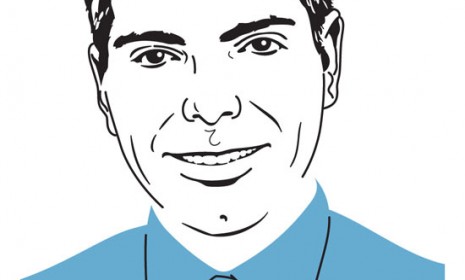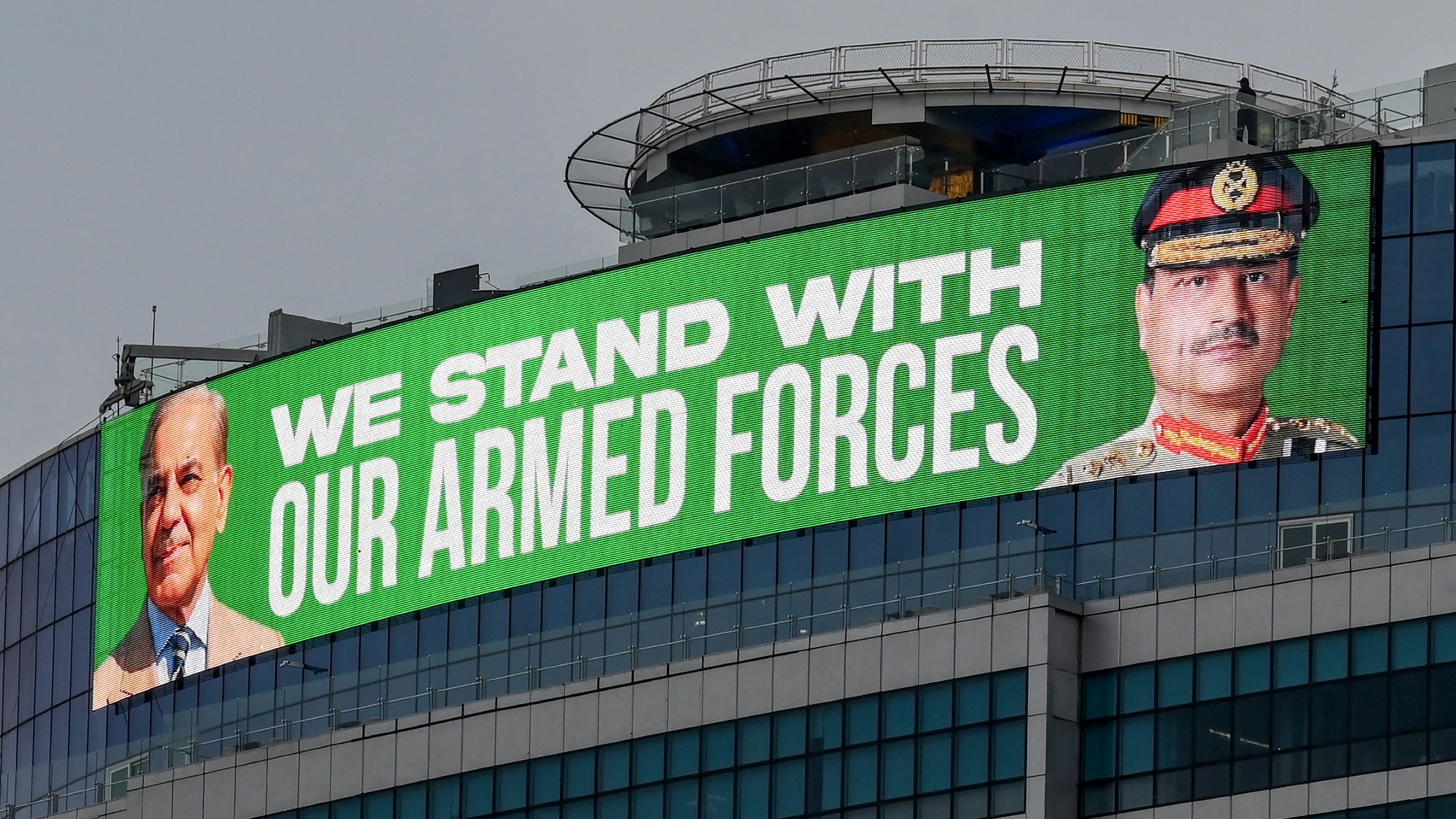Why I hate Twitter
The social sharing tool was once a vision. Now it's a prison


Soren Dayton and Rob Bluey — two conservative tech geniuses — talked me into joining Twitter during a lunch Ed Morrissey organized at an Iraqi restaurant in Minneapolis during the 2008 Republican convention. Life hasn't been the same since.
Of course, I can hardly claim to be an early adopter. But by virtue of signing up in 2008 (my original handle was @MattLewis01), I was at least well ahead of the curve. And soon enough, I became not only a proponent of Twitter, but also a sort of evangelist.
It's hard to even fathom now, but at the time, few journalists were really using Twitter. I was working at Townhall.com, and I can still remember some of my colleagues mocking me for "tweeting about what sandwich I was going to have for lunch that day." (Within a year, they would all succumb to the sweet temptations of Twitter.)
The Week
Escape your echo chamber. Get the facts behind the news, plus analysis from multiple perspectives.

Sign up for The Week's Free Newsletters
From our morning news briefing to a weekly Good News Newsletter, get the best of The Week delivered directly to your inbox.
From our morning news briefing to a weekly Good News Newsletter, get the best of The Week delivered directly to your inbox.
My next writing gig was with the now-defunct Politics Daily, and Twitter was very important to my job security. Our staff consisted of mostly seasoned and accomplished mainstream journalists who had worked at places like The New York Times and The Washington Post. And then there was me.
How did I compete with these highly accomplished journalists? My unique selling proposition was that a) I was a conservative-leaning writer, and b) I used Twitter.
Really, my ability to leverage my Twitter feed to find story ideas — and to drive up pageviews by tweeting out links — helped me survive and thrive.
Again, it's hard to believe, but in 2009 and 2010, most mainstream journalists weren't on Twitter — and if they were, they weren't terribly active. They weren't using it effectively.
A free daily email with the biggest news stories of the day – and the best features from TheWeek.com
One of my most ingenious ideas was to write a column listing the top conservatives, liberals, and journalists on Twitter. (The Week's Marc Ambinder came in at the number one spot on the resulting "Top 20 Political Journalists on Twitter.") The list was actually quite easy to make as most journalists weren't fully tapping Twitter's potential. (And while these days such lists are ubiquitous, at the time, it was a clever marketing ploy because anyone who made the list would be sure to tweet it out to his or her followers.)
Around this time, I would often speak to groups of aspiring young journalists, and my advice to them always included Twitter. It wasn't enough, I preached, to be a good writer or reporter — in today's world, you also had to be good at selling and disseminating information. The days of relying on your media outlet's PR person to do this for you were over. (In fact, you might not even have an outlet or a PR person!)
There were other benefits that transcended business. It became easy to start a conversation with anyone on Twitter by just using the @ function. "Friending" someone on Facebook feels formal, and messaging them via Facebook seems a bit imposing. But (unless they have a locked account), you can follow anyone on Twitter, and contacting them is easy and informal.
I'm no Manti Te'o, but I did meet a lot of virtual friends this way — friends that I feel like I know, even though we've never met. In some cases, Twitter friendships turned into business relationships. Justin Green, now a writer at The Daily Beast, landed an internship with me via Twitter. Green, a Nebraska native, disagreed with my analysis about the Nebraska Senate race, and let me know it on Twitter. The next thing I knew, he was interning for me at The Daily Caller.
Then the bottom fell out.
It's hard to pinpoint the exact moment it happened — but at some point, Twitter became a dark place.
It's a lot like the transformation of the 1960s. It started out being about free love, sharing ideas, and changing the world, but somehow we ended up being more about Altamont and Charles Manson.
Somewhere along the line, our optimism faded.
Once everyone was on Twitter, everyone's problems were on Twitter. The early adopters might have been tech-utopians, but the succeeding waves were angry cynics and partisan cranks who used the technology to make the world even louder and worse than it was before Twitter.
Compounding the problem is that — unlike everyone else — if you work in journalism, you can check out anytime you like, but you can never leave. Being on Twitter is now part of the job, meaning that you can't not be on Twitter. What was once an inspiring place that gave you a competitive advantage became a prison.
Twitter has become like high school, where the mean kids say something hurtful to boost their self-esteem and to see if others will laugh and join in. Aside from trolling for victims after some tragedy, Twitter isn't used for reporting much anymore. But it is used for snark.
What used to be talk around the newsroom watercooler is now on full display for the world to see. During Wayne LaPierre's ill-advised NRA press conference in December, The Atlantic's Jeffrey Goldberg observed that, "Reporters on my Twitter feed seem to hate the NRA more than anything else, ever." He was right. My colleague Alex Pappas documented some of the biased and downright mean things that reporters tweeted about LaPierre.
Look, I'm no saint here. I've said some things I regret on Twitter. The medium is dangerous and tempting. When Abraham Lincoln was mad, he would famously write people scathing letters. He would then file them in his desk drawer, never to be sent. Abe was lucky he didn't have Twitter.
Just as I was once an evangelist for Twitter, I've had a conversion. I've repented. I've reformed.
Writers should be thinking of big ideas, but Twitter sucks you into small, petty battles. It can distract you from the important to the urgent. Like a game of whack-a-mole, you can end up chasing the things that irritate you — hoping to correct every misconception or lie. This is no way to be productive. It's no way to live.
This is a unique challenge. We have it much better than past generations, but past generations could mostly leave their problems at work. Their bullies and bosses didn't follow them home — didn't hound them on their iPhones.
So what's the solution?
Like a baseball player who changes his stance, I'm always looking for ways to jostle my writing process and preserve my sanity. At some point, it became clear to me that Twitter was becoming more of a hindrance than a help.
For business reasons, I can't escape the prison (or, if you prefer, high school) that is Twitter, so I've had to become creative. I've created Twitter lists, where I can see only tweets from select people who inspire and inform. I also have a locked Twitter feed that is solely for my friends.
The biggest change is that I'm no longer really a part of the Twitter "community," meaning that I rarely interact with people on Twitter who wish to engage me. There are drawbacks to this, surely, but the upside is that I preserve my sanity.
My guess is this will also be a new trend. I might be ahead of the curve again, but I don't think I'm alone. My guess is that as Twitter becomes meaner and coarser, more and more people will begin checking out. Some may, for business reasons, remain on Twitter, but they will join me in changing how they use it.
And that's a shame. The vision of Twitter — and remember, I was an evangelist for it — was the notion that we could share information and ideas in a civil manner.
This is why we can't have nice things.
Update: Read Paul Brandus' rebuttal here.
Matt K. Lewis is a contributing editor at TheWeek.com and a senior contributor for The Daily Caller. He has written for outlets including GQ Politics, The Guardian, and Politico, and has been cited or quoted by outlets including New York Magazine, the Washington Post, and The New York Times. Matt co-hosts The DMZ on Bloggingheads.TV, and also hosts his own podcast. In 2011, Business Insider listed him as one of the 50 "Pundits You Need To Pay Attention To Between Now And The Election." And in 2012, the American Conservative Union honored Matt as their CPAC "Blogger of the Year." He currently lives in Alexandria, Va.
-
 Pakistan: Trump’s ‘favourite field marshal’ takes charge
Pakistan: Trump’s ‘favourite field marshal’ takes chargeIn the Spotlight Asim Munir’s control over all three branches of Pakistan’s military gives him ‘sweeping powers’ – and almost unlimited freedom to use them
-
 Codeword: December 6, 2025
Codeword: December 6, 2025The daily codeword puzzle from The Week
-
 Crossword: December 6, 2025
Crossword: December 6, 2025The daily crossword from The Week
